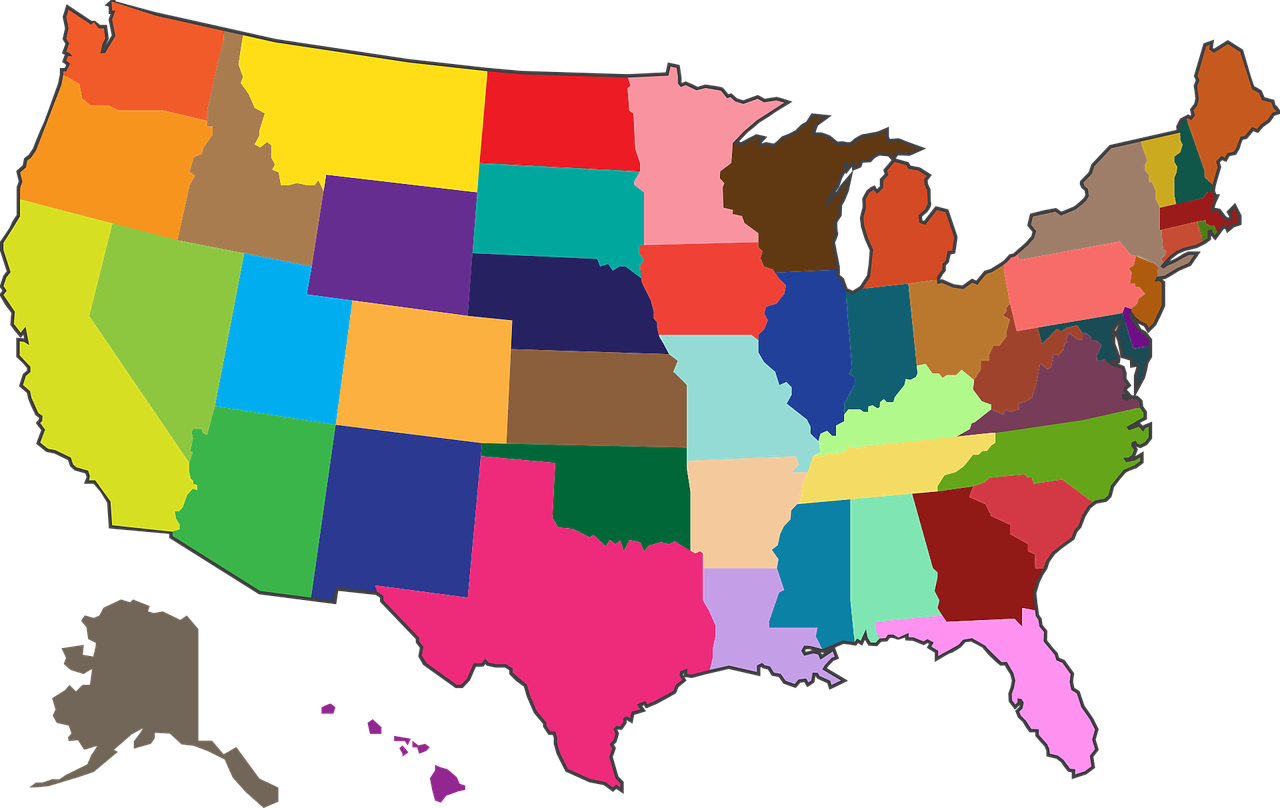How Much Will Medicaid Pay for Assisted Living?

Welcome to our guide on how much Medicaid will pay for assisted living! This guide is designed to help you understand Medicaid services and benefits related to assisted living, as well as other potential sources of financial assistance for those needing help covering assisted living costs. We will provide an overview of the average cost of assisted living, discuss the differences between Medicare and Medicaid coverage, and explain the appeals process for those who are denied Medicaid. We’ll also outline the basics of qualifying for Medicaid, list any state-level programs that can help with assisted living costs, and make a list of other potential financial assistance sources available. We hope this guide helps provide answers to your questions about Medicaid and assisted living.
Applying for Medicaid is an important step for those who need financial help with assisted living costs. To be eligible for Medicaid, you must meet certain qualifications, both medically and financially.
In terms of medical requirements, you must have a certain level of disability or similar health condition to qualify. Your doctor or specialist can help determine if you meet the criteria.
Financially, most states require applicants to have incomes that are below a certain threshold in order to qualify for assistance. In some states, marriage may also be considered when assessing eligibility, as the state may take into account your partner's income and assets.
It is important to understand that each state has its own set of rules and regulations when it comes to eligibility criteria for Medicaid. Therefore, it's best to check with your state's Medicaid department directly to get the most up-to-date information on eligibility requirements.
What Services and Benefits Does Medicaid Offer for Assisted Living?
Medicaid is a federal and state-funded insurance program that provides health care coverage for individuals who meet certain criteria. These criteria vary by state, but generally focus on financial need and/or disability. For those who qualify for Medicaid, the program may provide medical care as well as assistance with paying for some living expenses, such as assisted living.
When it comes to assisted living, Medicaid can help cover the costs associated with room and board, personal care services, and activities of daily living (e.g., bathing, dressing, grooming, medical care, etc.). Depending on the needs of the individual, it may also cover certain specialized services like occupational or physical therapy, nursing care, and even skilled nursing care.
In some cases, Medicaid may also help cover the cost of a private care provider, if the services are determined to be medically necessary. Additionally, depending on the state, the program may also provide assistance with transportation costs and/or home modifications.
Paid vs. Private Assisted Living
When it comes to assisted living, there is a big difference between paid and private arrangements. When someone says they are living in a paid assisted living facility, it usually means that they are living in a care facility that has been certified by the government or a state agency to provide services such as nursing care, physical therapy, medical supervision, and more.
On the other hand, private assisted living arrangements refer to living arrangements that have been independently set up by the individual or their family—not through any government program—and usually involve the individual paying for all of their own room and board and receiving help with activities of daily living from caregivers. Both types of living arrangements can be beneficial and have their own pros and cons.
One key advantage of paid assisted living is that it can provide an individual with greater access to medical care and support services than they would otherwise have. These facilities are generally subject to more rigorous standards than private living arrangements, and they also provide a safe and secure environment for those who require extra assistance. On the other hand, these facilities usually come with a high cost, which may not be feasible for some individuals.
The main benefit of private assisted living arrangements is that they are usually much more affordable than paid facilities. They also offer a greater degree of control over one’s own living situation, as well as more flexibility in terms of the type of care provided. However, private arrangements may not offer the same level of access to healthcare and other services as paid facilities.
When it comes to finding assistance for the cost of assisted living, it's important to look at state-level programs and initiatives that may provide additional support. Each state has its own set of policies, and may have different programs available for those in need.
For example, some states offer state-funded assistance to cover the cost of assisted living. These types of programs are generally designed to help low-income individuals and families, as well as seniors who may not otherwise qualify for Medicaid assistance.
In addition, some states may also offer special waivers that allow those who qualify to access a higher level of care than what is typically available through Medicaid. These waivers may allow individuals and families to receive coverage for services such as home health care or personal care assistance.
It's important to research all available state-level programs and initiatives to find out which one best fits your needs. Contacting your local Medicaid office can be a great starting point to get more information.
In addition to Medicaid, there are a number of other financial assistance sources available for those needing help covering the cost of assisted living. The Veterans Administration (VA) provides certain benefits to veterans and their surviving spouses who require nursing home or assisted living care. Charitable organizations and foundations may also be able to provide assistance, either through direct coverage or in the form of grants to cover necessary care costs. For more information about VA benefits or other assistance sources, consult your local VA office or speak with an experienced elder law attorney who can help identify and secure appropriate resources.
The Cost of Assisted Living
Assisted living can be expensive, especially for those who do not have the funds to cover the full cost. Fortunately, Medicaid may be able to help those in financial need pay for some or all of their assisted living expenses. It is important to understand the costs associated with assisted living and the types of assistance provided by Medicaid.
Average Costs of Assisted Living
The average cost of assisted living varies depending on location, services offered, and other factors. Generally, the national median cost of assisted living is $4,000 per month. However, prices can range from less than $1,000 per month up to $6,500 or more.
Medicaid Coverage for Assisted Living
In general, Medicaid covers many of the same services that are provided in a nursing home. This includes room and board, meals, housekeeping, personal care, and transportation. Depending on the state you live in, Medicaid may also cover services like recreational activities, physical therapy, and medical monitoring.
Unfortunately, Medicaid does not typically cover all of the expenses associated with assisted living. Some states offer Medicaid waivers, which allow people to receive additional support if they meet certain criteria. In addition, there may be other programs available to assist with the cost of assisted living in your state.
Medicare vs. Medicaid Coverage
When it comes to assisted living, there can be a lot of confusion between Medicare and Medicaid coverage. It is important to understand the difference between the two so that you can make an informed decision about which one is right for you.
Medicare is a federal health insurance program that is designed to provide coverage for seniors who are 65 years old and older or who have certain disabilities. This coverage helps cover medical expenses such as doctor visits, hospital stays, and preventive services, but typically does not cover long-term care, such as in-home care or assisted living
Medicaid, on the other hand, is a joint state and federal health insurance program that provides financial assistance for individuals and families who cannot afford health care coverage. Medicaid will typically cover long-term care costs such as in-home care and assisted living. However, the amount of coverage may vary depending on the state.
When it comes to covered expenses, Medicaid generally will pay a portion of the cost of assisted living, while Medicare will not pay any of the costs associated with assisted living. Therefore, if you are looking to receive assistance for assisted living, you will want to look into Medicaid options. It is important to note that each state has different rules regarding eligibility and coverage, so it is best to speak with your local Medicaid office to learn more about what types of assistance are available.
What is a Medicaid Waiver?
A Medicaid waiver is a special type of program that can provide additional assistance for those who are not able to pay for the cost of assisted living. These waivers can be used to cover medical and other costs associated with assisted living, such as meals, activities, and interpersonal and social care.
Who Qualifies for a Medicaid Waiver?
In order to qualify for a Medicaid waiver, an individual must meet certain eligibility requirements. Generally, individuals must have limited financial resources and have a disability or chronic illness that prevents them from living independently. Applicants must also meet the income and asset requirements set by the state in which they reside.
How do I Apply for a Medicaid Waiver?
Applying for a Medicaid waiver can be a complex process. Applicants should contact their local Medicaid office for more information about the requirements and application process. Individuals may also find it helpful to contact an attorney or other qualified professional to assist them with the application process.
Benefits of Qualifying for a Medicaid Waiver
Qualifying for a Medicaid waiver has many benefits, including:
- Assistance with covering the costs of assisted living.
- Access to in-home health services and programs.
- The ability to stay in a familiar living environment for longer.
Qualifying for a Medicaid waiver can make a significant difference in an individual's quality of life, allowing them to access the care and support they need while living independently.
Appeals Process for Denied Medicaid Assistance for Assisted Living
If you have been denied Medicaid assistance for assisted living, you may be able to appeal the decision. The appeal process is different depending on which state you live in, so it's important to understand the rules and regulations in your particular state.
When you file an appeal, you may be asked to submit additional documents or evidence to support your case, such as a doctor's note or other medical records. You may also need to attend an administrative hearing or mediations session depending on your state. You may want to consider hiring a lawyer to represent you in the appeal process, as they can help ensure your rights are being upheld.
It's important to remember that each state has its own appeal process, so make sure to research the details of your particular state. You can usually find information on appeals processes on your state's Department of Health website.
When it comes to Medicaid coverage for assisted living, understanding the eligibility criteria and available benefits is key. Although coverage and exact costs can vary from state to state, in general, Medicaid will cover some of the costs associated with assisted living. However, other forms of financial assistance may also be needed; this guide has outlined several potential sources for such help.
Those interested in Medicaid for assisted living should research their state’s specific guidelines, and any waivers that may be available to them. Furthermore, understanding the differences between Medicare and Medicaid coverage is essential for making informed decisions.
In conclusion, it is important to weigh all options when it comes to financing an assisted living arrangement. Knowing what options are available through Medicaid, as well as what other resources exist, can give individuals a greater chance of finding a solution that works for them.
Questions and Comments
We hope you have found this guide helpful in understanding how much Medicaid will pay for assisted living. We know that applying for Medicaid assistance can be a confusing process, and we want to make sure you have the answers you need. That’s why we’ve included this section to answer any questions or comments you may have about the information provided in this guide.
You might also like this article:









